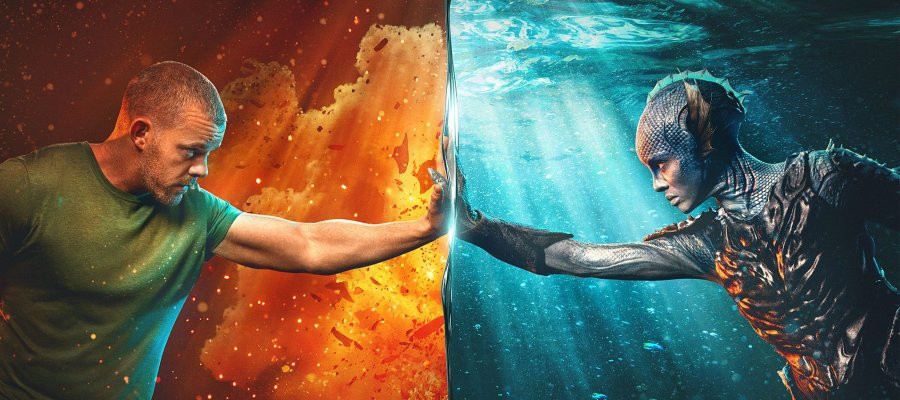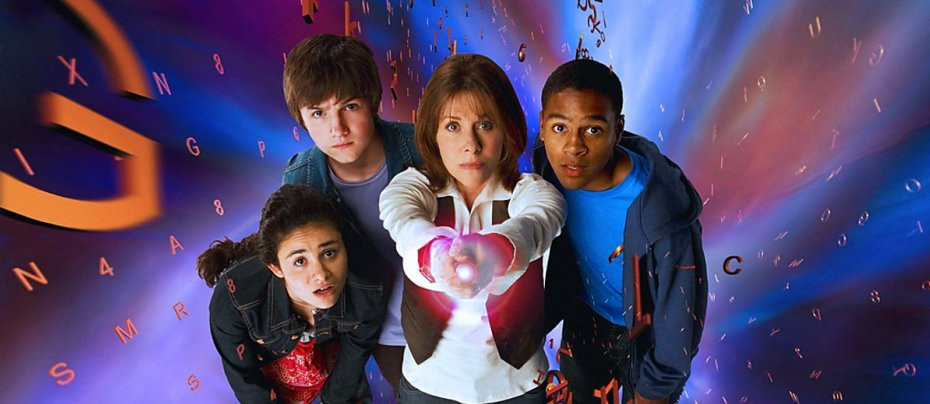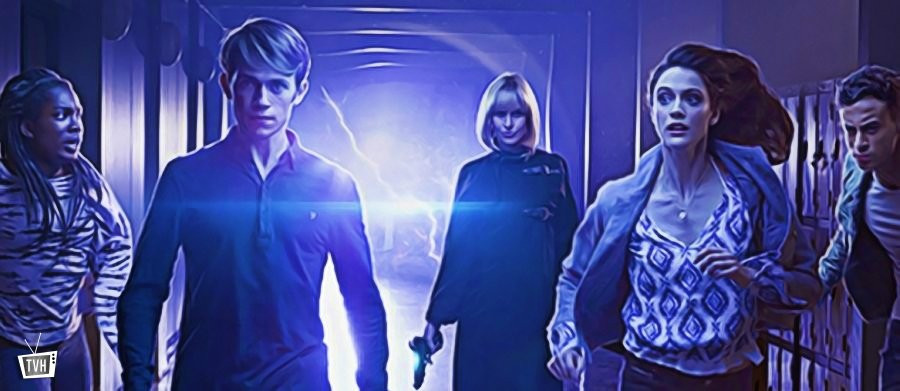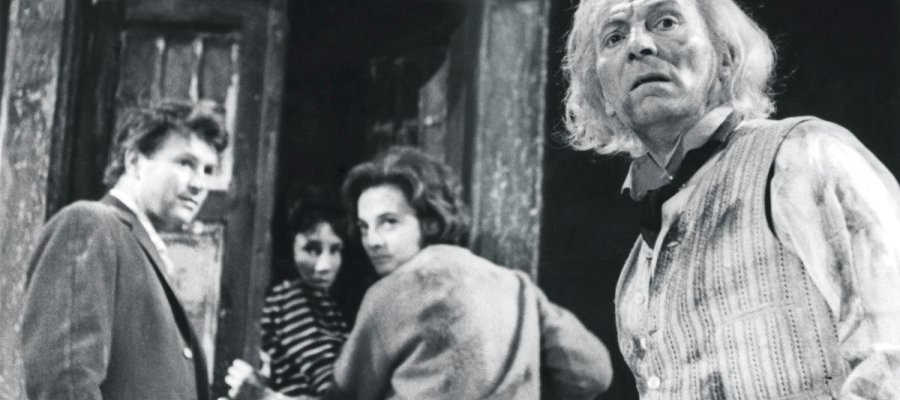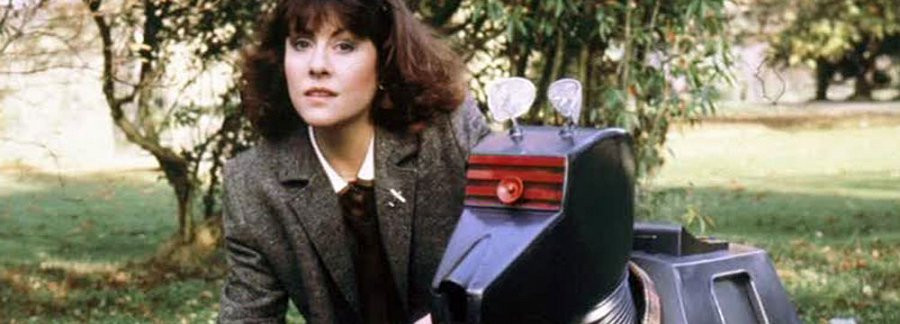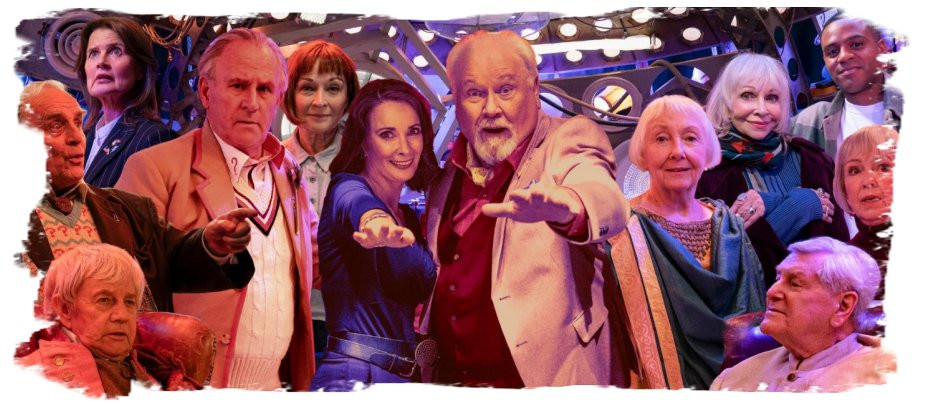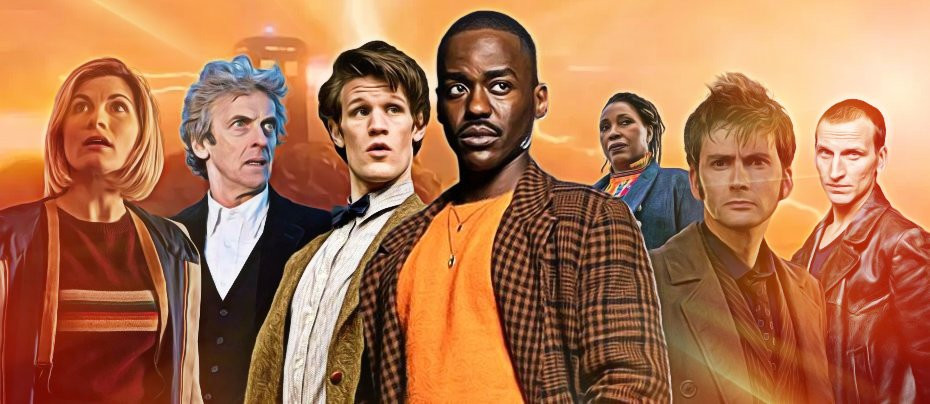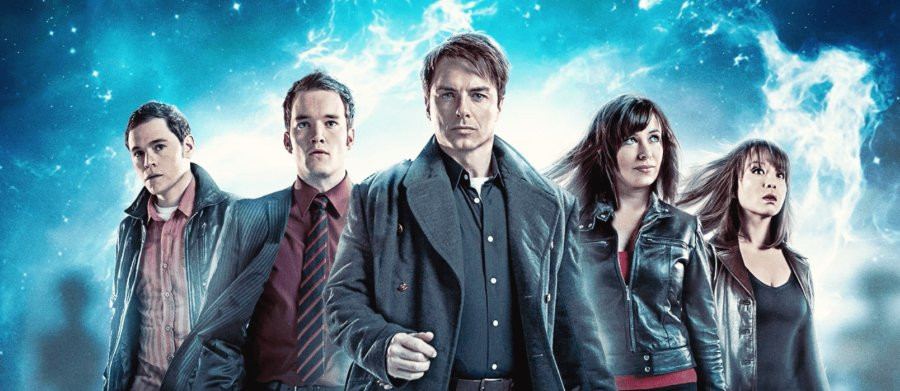The Daemons
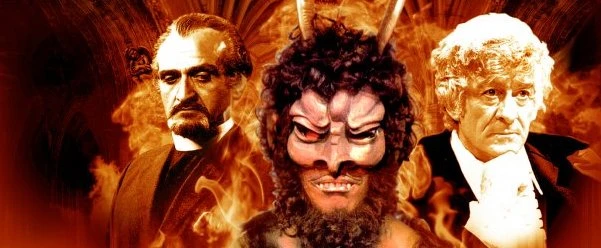
There's something about a thunderclap that sends a tingle down the spine; not a tingle of fear, but of familiarity. The Daemons begins on a dark and stormy night, with a thunderclap familiar to any viewer of twentieth-century television and film. That thunderclap must have featured in a thousand productions over the years, usually to signify that the viewers are in for a spooky time, and so it is with The Daemons, the final serial of the eighth season of Doctor Who.
The village of Devil's End has been beset by mysterious goings on ever since the opening of an ancient barrow in its environs. Howling winds and unexplained poltergeist activity have harassed helpless dog walkers ever since the archaeologist Professor Horner entered the site. It's all very alarming, but don't worry, for it's now possible to watch archaeological digs from the safety of one's own home or secret military base - unless Benton's switched over to the rugby. In an astounding example of foresight, the producers of The Daemons correctly predicted the future existence of BBC3, although in Doctor Who's strange reality it seems to be the home of scholarly live programming, rather than endless episodes of Snog Marry Avoid. Presented by Alastair Fergus (David Simeon), a sort of cross between David Frost and Alan Whicker with an added dose of camp, the dig at Devil's End is surely one of the most thrilling examples of programming the modern BBC has to offer.
It's certainly the talk of UNIT. Young Jo Grant (Katy Manning, gorgeous in a very Seventies suede number) is eager to watch it, although the Doctor initially pooh-poohs it all as balderdash. He's more interested in showing off his latest modifications to Bessie, his faithful automobile. Now he can order it about just like he does with Jo, courtesy of a handy remote control. That's a feature that'll be sure to come in handy for a punchline later. The Doctor has no truck with any of this magic nonsense, but one mention of Devil's End and he's whisking Jo off her feet and taking her up there to see the excavation first hand. As if Devil's End didn't have its share of grumpy old academics. Professor Horner (Robin Wentworth) is a perfect example of the self-important, supremely knowledgeable yet narrow-minded tweedy old curmudgeon we've all come to expect of television academics, snarling down any question our poor presenter Alastair might dare to voice. It's a shame we never get to see him sparring with the Doctor, for poor old Horner is unceremoniously killed by an earth tremor and a sudden violent drop in temperature as he breaks into the heart of the barrow, revealing the location of a (very small) buried spaceship. The Doctor almost gets there in time to stop him, but merely ends up frozen for much of the next episode.
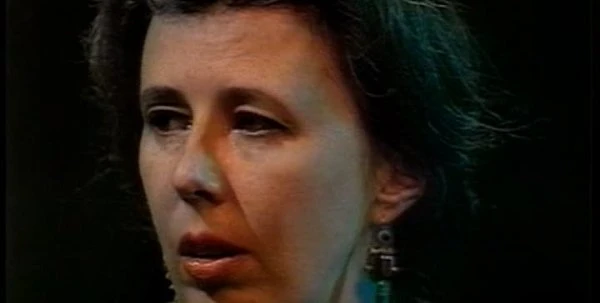
If only the Professor and the BBC3 crew had listened to Miss Hawthorne. Played wonderfully by Damaris Hayman, the perfect example of a slightly posh yet hippy eccentric, Miss Hawthorne is the local white witch. She knows how to cast the runes, and they've told her in no uncertain terms that opening up the barrow is a terrible idea. She has the power to face down possessed policemen, although she does run afoul of an angry verger. Miss Hawthorne holds this serial together, unflappable in the face of ancient alien evil, ready to make tea as unknowable forces come to the Earth. She has a fabulous chemistry with Sergeant Benton and can face up to the Doctor's greatest barrage of patronizing criticism. There's no such thing as magic, you see, merely violent emotions causing a surge in "psychokinetic energy," which allows the ancient science of the Daemons to work. "But that is magic!" points out Miss H, and it's hard to argue with her. Knowledgeable although the Doctor is, he's merely playing with semantics here. Even if a bit of nonsense babbled at an attacker only works as a spell because said attacker believes in it, surely it's still a spell? Sadly, the Doctor is armed with centuries of experience and a slideshow, so Miss Hawthorne doesn't stand a chance; a pity, as listening to her and the Doctor lisp at each other is one of the most entertaining parts of The Daemons.
The Doctor really is the most terrible old bore in this story. Jon Pertwee's take on the character was always one that switched between charm and short temper, but he spends this serial in a phenomenally foul mood. He belittles Jo, patronizing her at every opportunity; he complains about the Brigadier then chastises Jo for agreeing with him; supports Miss Hawthorne before immediately pouring scorn on her beliefs; and gives poor UNIT technician Sgt. Osgood a right earful because he doesn't understand the intricacies of Time Lord technology. From the moment he enters Devil's End, he wastes no time offending people, barging into the Cloven Hoof pub and demanding directions without so much as an insincere please and thank you, and almost starts on the Squire for suggesting that his hair is a wig. It's no wonder the Master has little difficulty in turning the villagers against him.
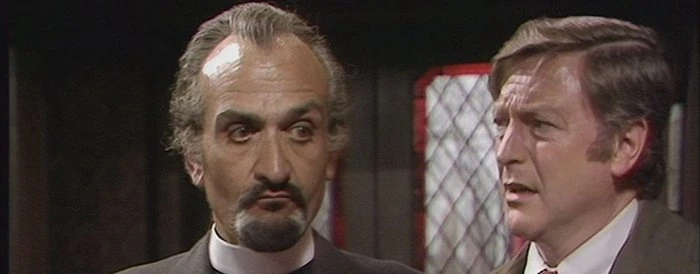
Ah yes, the Master. The Daemons is as much about him as it is the Doctor. Doctor Who's eighth season was the Master's first and finest, with the black-hearted Time Lord rogue appearing as the mystery villain of every single story. The Daemons doesn't pretend for one moment that we're going to be surprised by his involvement and presents him as the villain from the off. He's here, bespectacled and dog-collared, masquerading as replacement villager Mr Magister, in order to get his hands on the secrets of the Daemons, the mighty alien race that have interfered with Man's development over the millennia (just the first of many races to make such a claim in Doctor Who). Devil's End doesn't know what's hit it. Only Miss Hawthorne seems to be aware of the danger this malicious new vicar poses, immune as she is to his hypnotic ways. All the others fall under his spell. To begin with, he is the epitome of charm and restraint; it's tempting to say his company is preferable to the Doctor's. He subtly needles the guilt of his parishioners, drawing on their petty concerns to draw them in. Yet, the monster is never far from the surface; during his grand speech to his flock, he loses it utterly, ranting that they are as dust beneath his feet and such. Not the best way to get people onside, so he throws in some Daemonic magic tricks for good measure. He's already gathered some acolytes to perform his rituals, and is never far from his faithful familiar, Bok. The gruesome gargoyle is the more effective of the serial's two monsters, with the use of a grey body stocking working wonders; even if his feet are too big and he constantly has his tongue hanging out, Bok still makes for a formidable threat, flinging lightning bolts at his victims and seemingly immune to all forms of attack. In one memorable scene, he is destroyed by bazooka fire, shattered to pieces - before the simple rolling back of the film allows him to reconstitute himself, ready to fight again.
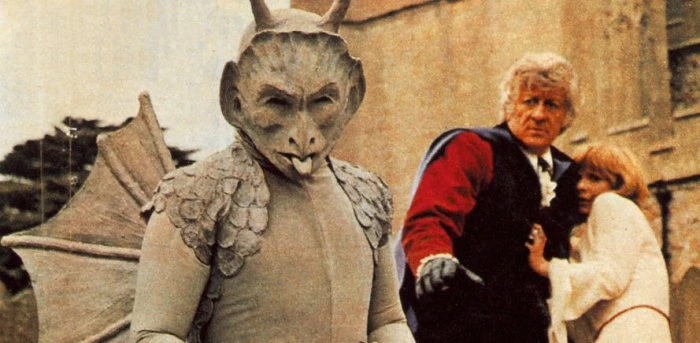
Although the threat of death by gargoyle is persuasive, it has to be said that the villagers don't take much pushing here. They're a fairly incredible looking bunch, not least Mr Thorpe (John Owens), who goes from mild-mannered man of tweed to screaming "Burn the witch!" in under record time. Most villainous is Bert the Landlord, owner of the Cloven Hoof and thoroughly despicable. He pretends to be on the side of the good guys, even offering sandwiches during UNIT strategy meetings - declined by Captain Yates, probably just to annoy Benton, who spends the entire serial desperately trying to get fed. However, he's well and truly under the power of the Master. Don McKillop puts in a fine performance, cowing and subservient in the presence of his Master, but with the arrogance and false confidence of the playground bully elsewhere.
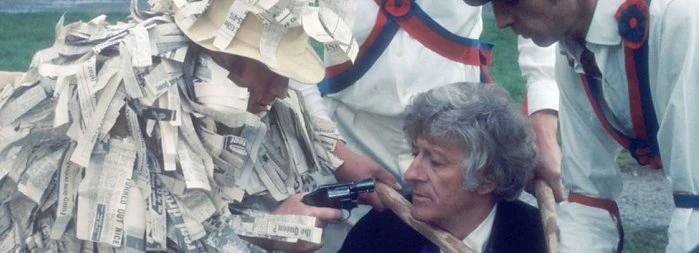
It all leads up to the legendary Morris dance scene. The arcane tradition of the Morris has always seemed faintly sinister; watch how the housewives of Devil's End, unfazed by talk of Satan's return to Earth in their very village, lock their windows and usher in their children at the sight of these handkerchiefed men. Waving their big sticks, they capture the Doctor (why doesn't he just walk around them?) allowing a gun-toting, newspaper clad Bert to tie him to the Maypole ready for burning, in the serial's most arresting image. "He's a black witch!" insists Bert. Now, the Doctor may have a bit of an afro, but I think that's going a bit far. Thankfully, the combined forces of Benton, Miss Hawthorne and the remote-controlled Bessie allow the Doctor to escape imminent immolation in a masterful display of illusion.
What the Master, and indeed the viewers, are waiting for, is the Daemon himself. Originating from the planet Daemos, sixty thousand light years away on the far side of the Galaxy, the Daemons were masters of the psionic sciences and confused people by having two different ways to pronounce their name. Azal, the last of this great race, lies beneath Devil's End. I wonder, did the Master arrange for the dig in order that he be awoken? Or did he set his vicar disguise up in order to take advantage of it, having seen the trailers on BBC3? Either way, he knows that Azal will bequeath his great power to a follower, although he may decide to destroy the Earth before that, if he finds it disappointing. His technology allows him to grow or shrink at will, absorbing or emitting heat to balance out the mass-energy exchange. As the Doctor rightly states, e=mc2, although a sudden heat wave is hardly enough to allow for the enormous energy released by several tons of gigantic alien mass. The secret techniques of the Daemons allow the creation a vast heat barrier around the village, preventing the Brigadier and his reinforcements from entering. It's a clever device, a visually cheap yet highly effective way of keeping the main characters isolated. Thankfully, the Brigadier (the wonderful Nicholas Courtney) is only on the other end of a walkie-talkie, ready to dispense orders and display withering disbelief at the lien of work he's got himself into. His deadpan reaction to so much of the otherworldly goings on around him helps keep this nonsense grounded. Plus, once he does break through the barrier, he gets to deliver the immortal line: "Chap with the wings there - five rounds rapid!"
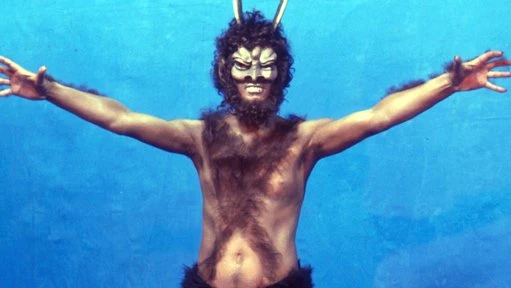
Azal is slow to rise. It takes him a good three goes to get up and about, although he does manage to leave gigantic hoof prints all over the surrounding countryside and scare the wits out of Miss Hawthorne. "You saw the Devil?" asks the Doctor with evident disdain. There's no such thing, he insists (better be prepared to eat your words, Doctor - you'll be meeting him in about thirty-five years). The Daemons merely inspired the myths, you see. Azal certainly looks the part. Once he finally appears for good, he's an impressive sight, with long saturnine horns and an effective bestial, golden mask. The wrinkled stockings do rather detract from the effect, though. Stephen Thorne makes his first Doctor Who appearance, and his mighty, booming voice is just what the role of Azal calls for. "This planet smells to me!" he bellows, before qualifying it with "of failure," which robs the line of a lot of its joy. Unfortunately, Azal, supposedly the greatest threat the world has ever faced, turns out to be something of a damp squib. He's impressed enough by the Doctor to offer him the power of the Daemons, but the Doctor declines. Perhaps unwise, seeing that he could have put a stop to all this chaos in seconds had he accepted. Stung by the insult, Azal moves to destroy him, but Jo offers her life instead. At this moment, Azal ceases to be a member of an advanced alien race, and instead transforms into one of those crazed computers that Captain Kirk battled in Star Trek once or twice a season. Faced with the seemingly insurmountably illogical concept of self-sacrifice, he "blows a fuse" and explodes, taking his spaceship and all his secrets with him. It's an astonishing cop-out to end a story with.
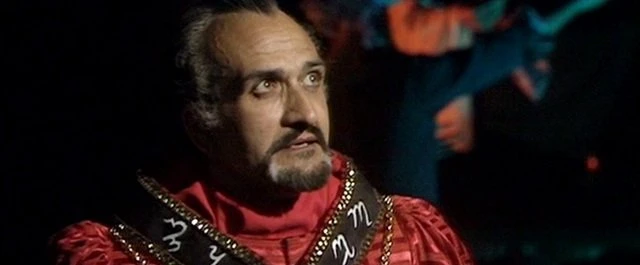
Thankfully, there are still a few further frolics to be had, as the Master attempts escape, but is thwarted by Bessie and her remote control. Under lock and key at last, he won't be back to bother the Doctor for another three whole stories. So, with the Doctor and his chums off for a dance around the Maypole - except for the Brigadier and Yates, who nip off for a sneaky pint - the viewers are left to consider what they have just seen.
Review by Daniel Tessier


